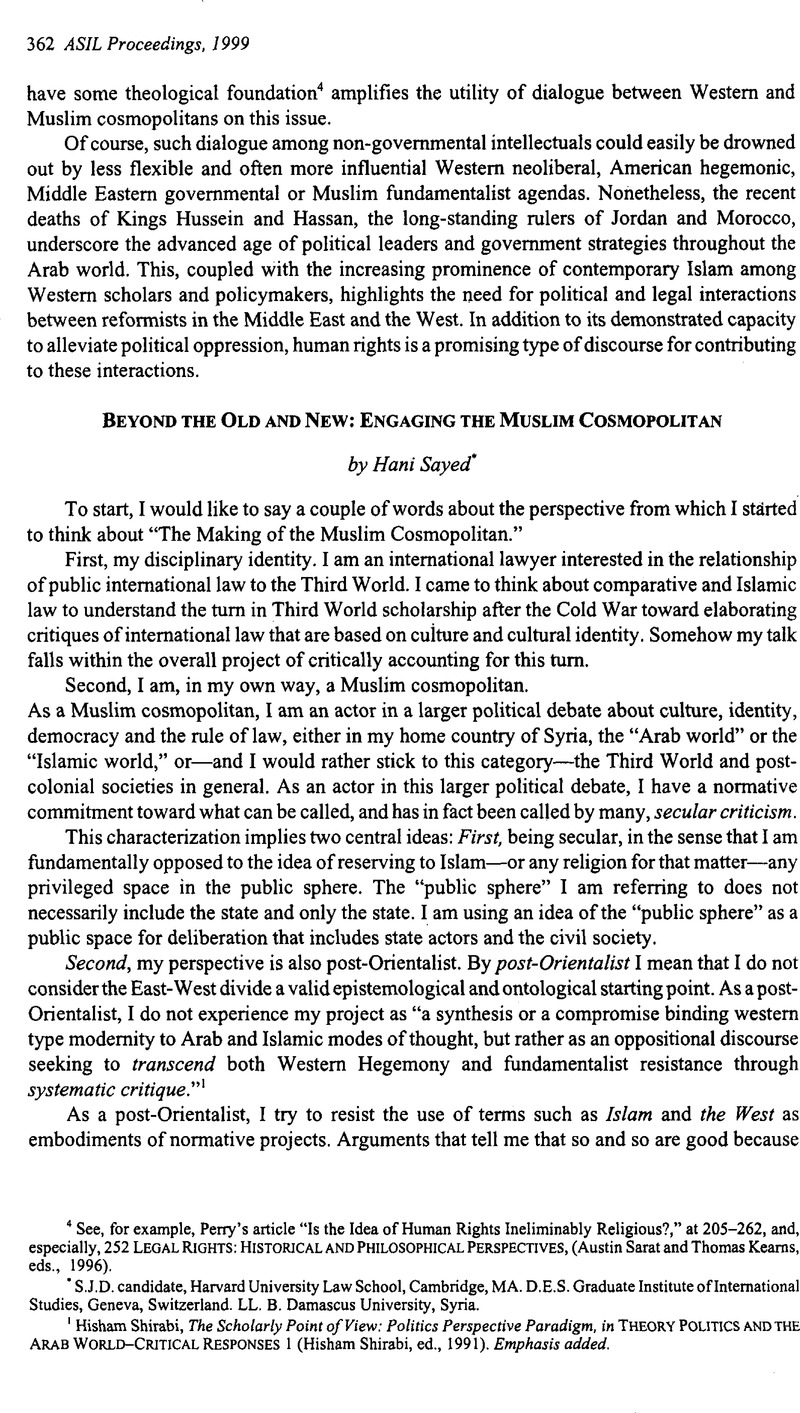Published online by Cambridge University Press: 28 February 2017

1 Shirabi, Hisham, The Scholarly Point of View: Politics Perspective Paradigm, in Theory Politics and the Arab World-Critical Responses 1 (Shirabi, Hisham, ed., 1991)Google Scholar. Emphasis added.
2 Hill, Enid, Comparative and Historical Study of Modern Middle Eastern Law, 26 Am. J. Comp. L. 279 (1978)CrossRefGoogle Scholar. Hill, Enid, Orientalism and Liberal-Legalism: The Study of Islamic Law in Modern Middle East 1 Review of Middle Eastern Studies 13 (1975)Google Scholar.
3 Zubaida, Sami, Cosmopolitanism and the Middle East, in Cosmopolitanism, Identity and Authenticity in the Middle East, 15 at 31 (Meijer, Roel, ed., 1999)Google Scholar Emphasis added.
4 Taha Hussein (1889-1973) is a famous Egyptian Professor of Arab Literature and Philosophy. He is often referred to as “the Dean of Arab Literature.” For more information about his life and work, please refer to Albert Habib Hourani, Arabic Thought in the Liberal Age, 1798-1939 (1983).
5 Lama Abu-Odeh, “The Other Constitution: The Egyptian Supreme Constitutional Court and Islamic Sharia,” speech delivered at the 93rd annual meeting of the American Society of International Law.
6 For more information about les juristes inquiets and their similarity to American Legal Realism, see Belleau, Marie-Claire, The ‘juristes inquiets:’ Legal Classicism and Criticism in Early Twentieth Century France, a paper presented at the Symposium on New Approaches to Comparative Law, University of Utah, 2 Utah L. Rev. 379–424 (1997)Google Scholar.
7 The relationship between Sanhuri’s anti-formalism and his socially conscious legal scholarship is a complex and strongly debated issue. An interesting Doctoral project about this very issue is pursued by Amr Shalakany, S.J.D. candidate at Harvard Law School, see Shalakany, Amr, The Analytics of the Social in Private Law Theory, S.J.D. Dissertation, 1999 Google Scholar, Harvard Law Library.
8 Most of the works that can be cited here are in Arabic. However, an interesting articulation of, and engagement with this cosmopolitan sensibility can be found in Frank E. Vogel & Samuel L. Hayes Iii, Islamic Law and Finance: Religion, Risk, and Return (1998).